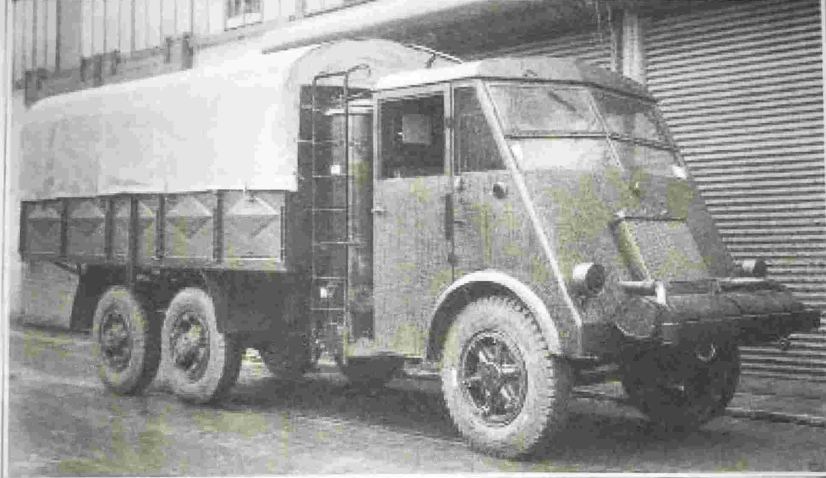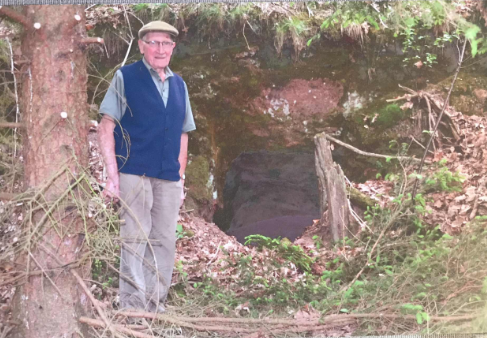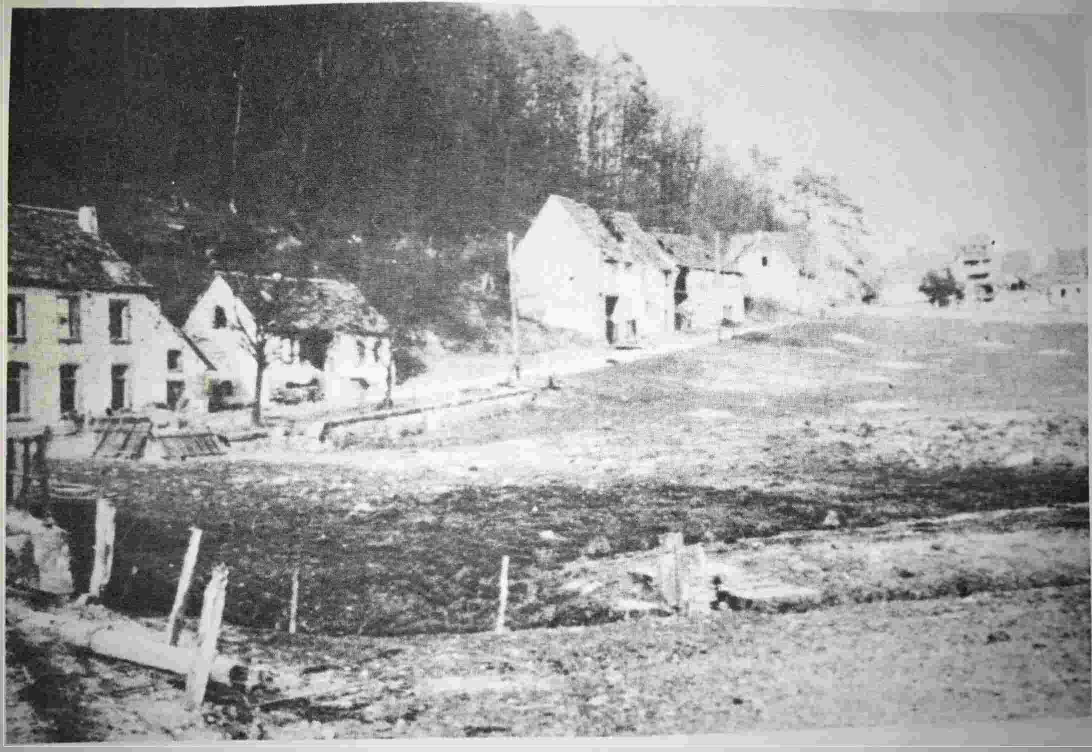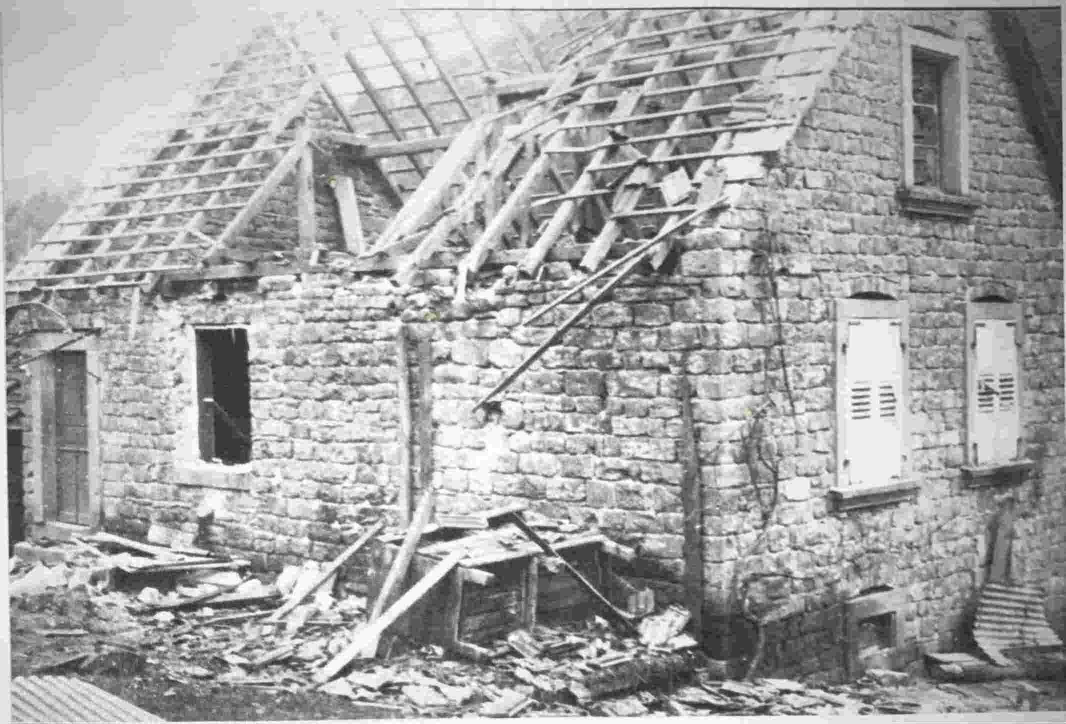Incorporated in R.A.D with my friend Alfred Schwartz on June 10, 1944 in Waldfischbach. Story of Jean-Pierre Letzelter
The Reichsarbeitsdienst (abbreviation, RAD Labor Service Reich) was an organization of the National Socialist power apparatus of the Third Reich from the years 1933 to 1945. From June 1935 each young man and girl are obliged to perform a six months' service prior to military service.

First escape
The first escape occurred on April 30, 1944 in the evening at 11 pm Arrested while passing by Pirmasens during a "Fliegeralarm" (aerial alert).
Taken back by the gendarmerie at Waldfischbach camp where the whole company was gathered to welcome us. The Oberfeldwebel (Chief Warrant Officer) presents us as deserters, saying: "Schaut euch mal diese Krucken da an, sie werden als Kriegsverbercher verurteilt" (Look at these lame, they will be judged by the court-martial) Then we were locked in a small room whose windows were nailed with planks. We had to sleep laying the ground on a blanket, we were treated like criminals.
On September 10, 1944 the camp was transferred to Kaiserslautern as the allies were getting closer. Locked up in one room for 2 days without anyone taking care of us, almost nothing to eat and a bucket for the toilet. The beautiful life what!
fter a few lucky days, a nice Sunday morning, we come to get us to clean a stable for 10 horses that has not been cleaned for a long time. We were busy for the day
A few days later, a change of camp at Russheim (near Germersheim) in the Rhine.
The next day, both of us changed jobs. Alfred was named "Schweine Ordonanz" (pig attendant) so he had to take care of a dozen pigs. As for me, I was luckier because I was named a cook's assistant: chore of potatoes, clean vegetables and especially a kitchen always flawlessly clean. Not too bad ! We had at least some food. Still without a guard, we were entrusted a few days later with the cleaning of the Oberfeldwebel office. I had spotted from the first day the permission forms and the stamp that goes with them, which will allow me, one day, to go home. For any little thing, he opened the office door, which was always to be clean, and shouted: "Arbeitsmann Hans sofort ins office". Since I was a well educated and obedient boy, everything went well between us. One day I still managed to get (illegally) a leave sheet and, icing on the cake, to put the stamp of the camp on it. This theft served us a lot for our second escape.
Alfred had a lot of work with his troop of pigs. A horse was at his disposal to search for leftovers in the surrounding camps and for horse rides.
All this did not last long.
November 11, 1944 Stellung Befehl in the Wehrmacht (mission order in the defense force) in Kuestrin.
November 12, 1944 move to Schifferstadt to join the convoy by train to Kuestrin (Brandenburg east of Berlin) The convoy was composed of young people who came from 4 weeks of leave after the Arbeitsdienst, so all in civilian clothes. As we were escapees, we were not entitled to this permission and we were incorporated directly into the armed forces of the Arbeitsdienst.
November 13, departure under armed surveillance since I was deserter. From Schifferstadt station with the motto: "Jeder Flucht versuch wird erschossen" (Each escape attempt will be shot). Arrival in Ludwigshaffen, train change to Mannheim.
Arrival in Mannheim, the siren of the Fliegeralarm sounds, everyone in the Luftschutzkeller (anti-aircraft shelter) It is then time to risk everything for the whole and to escape.
Second escape
With the permission to go to the bathroom, I went on foot with friends leaving our little package on the spot towards ... "freedom".
On the way we were asked where we come from, where we are going, the answer was always the same: Versprenckte Truppen, wir suchen unsere Einheit! (Our regiment is broken, we are looking for our unit)
After 2 hours of walking we arrived in Schwetzingen, the seamstresses offered us coffee. Our main concern was the return to France. After consulting the schedules of trains departing for Alsace, we find that the first was at 19:00.
When getting on the train, the Feldgendarmerie was checking and that's where the stolen permission saved our lives. I briefly showed them permission and told us to get on the train quickly. It must be known that it was the crowd on the station platform. We spent the night in the train station of Wissembourg to take the train of 7h for Haguenau.
But in Haguenau no more connecting train to Bitche before the evening. We decide to continue by the road. Leaving the station on foot, we had lunch in a bakery near the Bitche road bridge in Haguenau. It was the baker who stood in front of the door who asked us where we came from and where we were going. When she heard our story she sympathized because she was expecting a son who had also escaped and she offered us breakfast.
There, a driver drove us to the De Dietrich factory in Reichshoffen.
From there, two friends, Oberhauser from St Louis and Stenger from Goetzenbruck, went on their own, by foot.
Alfred Schwartz and myself from Eguelshardt stayed at an aunt's house in Reichshoffen until the evening to get home by train.
At the junction, a German truck stopped with a truck that rolled with gasogen produced by a wood fire (Holz gas)

The gasifier, invented in the nineteenth century, is an apparatus for producing a combustible gas by pyrolysis of solid and combustible materials: wood (wood gas), charcoal, coke, anthracite, etc. and to supply so-called "poor gas" engines, conventional explosion engines or boilers.
The system, in the form developed by Georges Imbert in 1920, was used in Europe to make up for the lack of motor fuel during the Second World War. It is indeed a simple device to manufacture, requiring only materials easy to obtain. Source: https://fr.wikipedia.org/wiki/Gazog%C3%A8ne
As my friend owned a tractor in the Holzgaz he knew that these trucks were practically no longer moving at the smallest hill. We decided immediately to get into the truck without the driver's knowledge by hiding under the tarpaulin, telling us that in the hill of Pfaffenberg, there will be no problem to get off the vehicle, After a quarter of an hour the driver resumes his journey without knowing that he has stowaways on board. Between Niederbronn and Philippsbourg, at a place called Riesthal he stops to put wood in his machine. As it was dark and we were not moving, he resumed his journey without seeing us. We sighed of relief.
Arriving at the entrance of Eguelshardt, at a place called "Am Kreuz", a hill and the truck slows down. Alfred says to me "This is the moment, we go down! ". No sooner said than done !
We cross the railway and we go along the edge of the forest. Suddenly a dog barks near us, our first thought: "We are on the run for two days, we are 1 km from the house and here we are for the 2nd time, denounced by a dog Gestapo! "
After a few seconds of stupor and immobilization we left, without a word and without a sound, along the forest to the house of an aunt of Alfred who lived at the edge of the forest.
Arrived at the level of the house we listen to the door. Stupor! Aunt Anna, who is a widow and lives alone, speaks with a man! After a while, this man, Bannstein's station manager, who rented a room, left.
While Aunt Anna was locking the door, Alfred called to tell her that we had escaped. Without entering the house she made us understand that we had to wait in the shed where the wood was stored. She came back with a big coat and a milk can in one hand. She left to ask her brother who lived 200m to accompany Alfred to his parents who lived 600m in the village. Alfred left with his uncle while I followed his aunt who pretended she was going to get milk from my parents. We passed the guarded bridge without difficulty since the guards knew her because she was getting milk every day.
The hidden
The escape was successful but it is now that I run the most risk because it was necessary to hide so as not to be spotted and especially not to endanger my loved ones. An uncle and his two daughters had come from Thionville to take refuge with my parents because he thought that in the countryside they would be safer than in the city. As a result, I could not show myself because the girls of 10 and 14 could have reported me without wanting to
The next day my brother René went to see a forest ranger at Biesenberg where I had worked a lot to ask him if he could hide me from his house. Mr. Provot agreed and the same evening, at 2 on the same bike, my brother and I traveled the 6kms that separate us from the forest house Biesenberg.
After a 4 week stay at Biesenberg with Charles, another deserter, I went back to my parents. Along the way a burst of shells, fired by the Americans, broke out around us. As there are many small rocks in our forests, we were able to camouflage ourselves while waiting for the return to calm. After half an hour, we were able to continue to arrive at nightfall at home
The more the American army advanced, the more bombing and shelling intensified. The civilians barricaded themselves in the cellars while the German soldiers occupied the houses. So for us the hidden refractories, it was impossible to move. Knowing that the Americans were advancing, although slowly, since Niederbronn, we hoped to be liberated soon. Unfortunately the liberators stop at Bannstein.
Eguelshardt remains under German control while Bannstein is under American control. As a result Eguelshardt becomes the front, therefore the target of the bombs and shells of the 2 opponents. Christmas was coming and everyone believed in a close liberation.
Unfortunately on the night of 31 December to 1 January the German army launches the counter-offensive and the US military must retreat.
A sad news for the 28 hidden refractories of the village. Some will join the Americans while others like me will stay hidden on the attics in piles of hay, in cellars under potatoes or beets. Before Christmas, a 3rd deserter (Raymond) joined us because he could not hide at his parents any longer. So we decided to go into the forest in a shelter that other "hidden" had done before leaving.

Despite the cold, very little fire was lit at night, but especially not during the day because the smoke could have betrayed our presence. I remember that in February it was cold but sunny and to make the most of this heat we did not hesitate to climb trees.
We would come back once a week to get some food and a big bottle of water which we had to transport to our hiding place by another way every time so as not to leave traces and to be spotted.

We lived in hiding until the liberation of the village on March 16, 1945.
When we returned to the village we could see the damage suffered by our houses during the bombings

